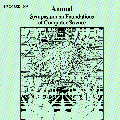Non-malleable extractors are generalizations and strengthening of standard randomness extractors, that are resilient to adversarial tampering. Such extractors have wide applications in cryptography and explicit construction of extractors. In the well-studied models of two-source and affine non-malleable extractors, the previous best constructions only work for entropy rate $>2/3$ and $1-\gamma$ respectively by Li (FOCS' 23). We present explicit constructions of two-source and affine non-malleable extractors that match the state-of-the-art constructions of standard ones for small entropy. Our main results include two-source and affine non-malleable extractors (over $\mathsf{F}_2$) for sources on $n$ bits with min-entropy $k \ge \log^C n$ and polynomially small error, matching the parameters of standard extractors by Chattopadhyay and Zuckerman (STOC' 16, Annals of Mathematics' 19) and Li (FOCS' 16), as well as those with min-entropy $k = O(\log n)$ and constant error, matching the parameters of standard extractors by Li (FOCS' 23). Our constructions significantly improve previous results, and the parameters (entropy requirement and error) are the best possible without first improving the constructions of standard extractors. In addition, our improved affine non-malleable extractors give strong lower bounds for a certain kind of read-once linear branching programs, recently introduced by Gryaznov, Pudl\'{a}k, and Talebanfard (CCC' 22) as a generalization of several well-studied computational models. These bounds match the previously best-known average-case hardness results given by Chattopadhyay and Liao (CCC' 23) and Li (FOCS' 23), where the branching program size lower bounds are close to optimal, but the explicit functions we use here are different.\ Our results also suggest a possible deeper connection between non-malleable extractors and standard ones.
翻译:暂无翻译




